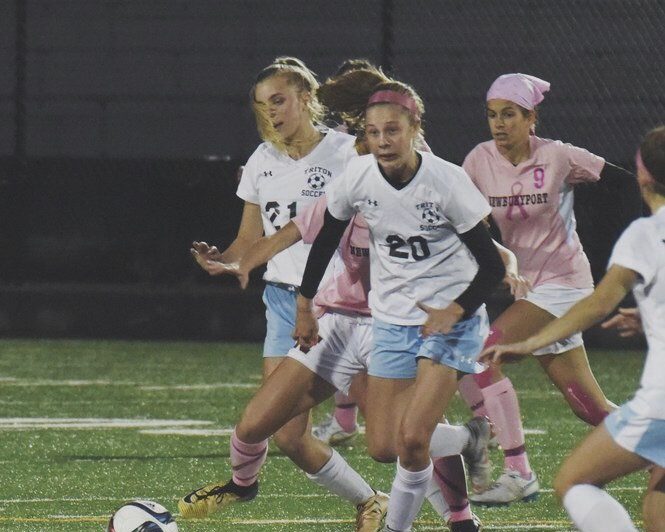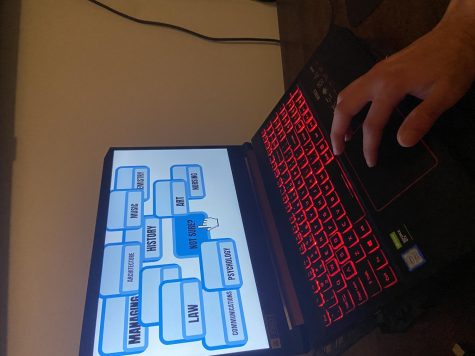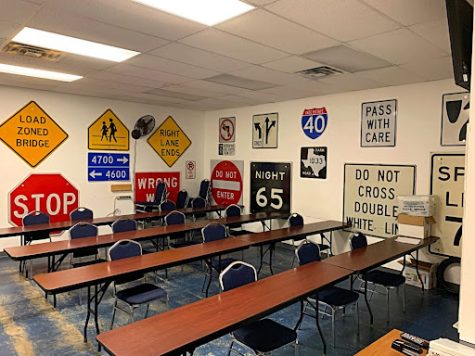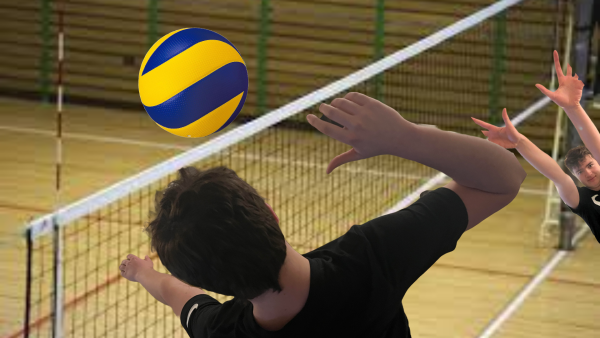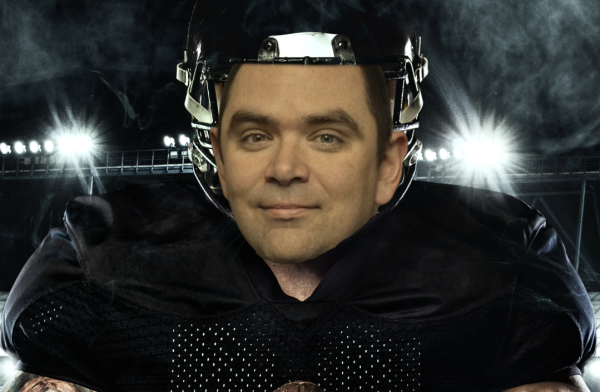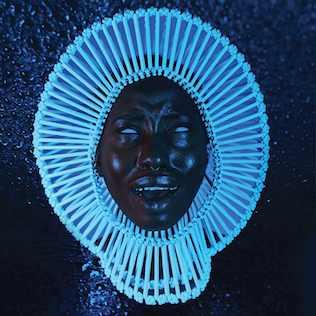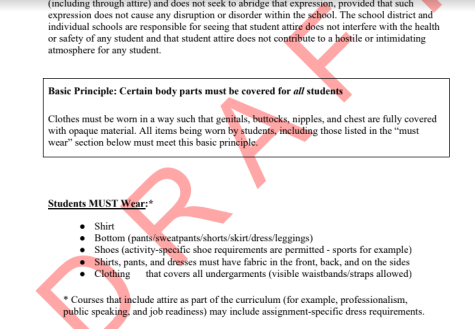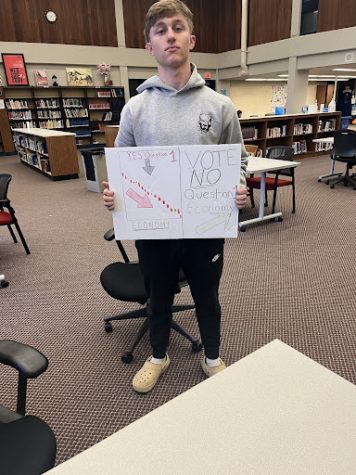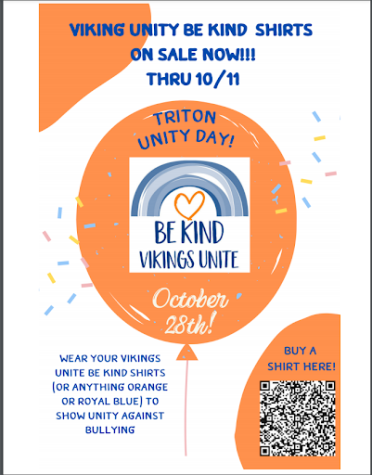What Really is Being Asked of Student-Athletes
Describing a day in the life of a student athlete at Triton Regional High School.
Photo courtesy Newburyport Daily News
Triton three-sport athlete Emily Colby hustles for the ball during a soccer game this past fall.
Senior varsity track runner Amy Clark knows how difficult it is to balance academics and sports.
“Being a student-athlete is challenging but worth it,” said Clark. “It can be stressful from time to time due to also having a part-time job and taking challenging courses at school, but, being apart of a team and exercise with your friends is the best feeling in the world.”
Student-athletes are continually being asked to perform at high levels in both the classroom and on their sports teams. With pressures coming from parents, teachers, and coaches it is hard to find the time to socialize when the athletes are at school then they go home, then go to practice, then come back from practice and stay up late doing homework, to then repeating the cycle five to six times a week.
“You get up in the morning, and you are already tired from late-night practices, and trying to finish up homework at night,” said junior Paige Volpone, varsity lacrosse, basketball, and volleyball player. “Then you get to school, and after that you know you still have to go to practice later. It just gets tiring after a while.”
The Triton Voice researched the advantages and disadvantages of being a student-athlete in order to find out what it is really like being a student-athlete. To truly understand what a day in the life of a student-athlete looks like, they observed one student-athlete and followed her for a day.
Junior Emily Colby plays varsity soccer, varsity basketball, and runs varsity track. A member of the Triton Voice team observed her academic school day on February 13th, 2018. Colby starts her day off bright and early at six in the morning. She arrives at school on time and starts her day. Second period she had to listen to a debate and take one page of notes. The notes included one thoughtful question for each of the member of the debate team. Third period she got a test back and as a class they went through and made corrections in preparation for possible retake test. Fourth period was her gym class, where she played basketball. In fifth period she had to teach a lesson in her AP Comp class.
The lesson was on direct, active, and precise verbs. In addition to the lesson Colby also made, a quiz, and two homework assignments for her class. It was evident to the reporter that this lesson took a lot of time and preparation because of how well put together the lesson was. Finally, after school, Colby did homework before her 6:30-8:00 p.m. practice. After practice, Colby finished homework and got ready for bed and finally went to sleep at around 10 p.m.
Based on the research, there are advantages and disadvantages to being a student-athlete.
You get up in the morning, and you are already tired from late-night practices, and trying to finish up homework at night, then you get to school, and after that you know you still have to go to practice later. It just gets tiring after a while. — Paige Volpone
The benefits are that the skills developed as a high school athlete are: teamwork, perseverance, responsibility, physical endurance, commitment, and time management. The athletes are also learning skills like loyalty, being dependable and responsible, and learning to work well with others. These skills will be something the student-athlete can use in the real-world when negotiating contracts or talking to professors or bosses.
Some disadvantages of being a student-athlete are that “the hours of the day start passing you by and the prospect of social life becomes slim to none,” according to the article, The Struggle is Real: How Being a Student-Athlete is More than Just Fun and Games, by Megan Bender. “ Between studying, class, practices, and games, your team eventually becomes your only source of social life.”
Junior Connor Kohan varsity hockey and varsity golf player, explained that being a student-athlete means a hectic schedule sometimes.
“A hard day is waking up early to go work out before school. Then having to go to school and then straight to practice. Then going to the gym again after practice. Finally, a pile of homework to do so I’m up until midnight doing homework.”
Being a student-athlete has its positives and negatives, but ultimately the thing that keeps athletes coming back is their love for the game and the unbreakable bond of being a part of a team.
“Being a student-athlete is great, not only does it give you friends and memories, but it gives you drive and in many cases gives me good time management,” said junior Rylee Lucia varsity field hockey and varsity swimmer, when asked what is it like being a student athlete? “It makes me accountable, if I want something I need to work for it. It (a sport) teaches you a lot of great life lessons along the way. It opens up so many opportunities, and the people you meet and the teammates who you connect with, together makes you apart of an exclusive family that is untouchable.”

Hello there, my name is Caitlin White, and I am a junior at Triton High School in Byfield, Massachusetts. I work at Marini Farm in Ipswich, Massachusetts...


